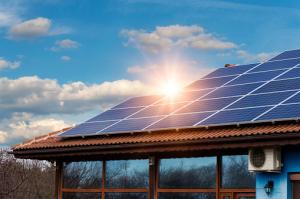The Residential Clean Energy Credit for 2023 and 2024: Unlocking Savings and Sustainability
In an era of environmental consciousness, homeowners in 2023 and 2024 have much to look forward to with the Residential Clean Energy Credit.
TRAVERSE CITY, MI, US, October 11, 2023 /EINPresswire.com/ -- In an era where environmental consciousness meets financial wisdom, homeowners in 2023 and 2024 have much to look forward to with the Residential Clean Energy Credit.
This impactful initiative encourages eco-friendly choices and offers significant tax benefits, making clean energy solutions more accessible than ever.
Key Highlights of the Residential Clean Energy Credit for 2023 and 2024
Expanding Clean Energy Adoption: The Residential Clean Energy Credit is a powerful incentive for homeowners to invest in renewable energy sources such as solar panels, wind turbines, geothermal heat pumps, and energy-efficient home improvements.
Promoting the use of clean energy contributes to a greener, more sustainable future.
Tax Benefits: Eligible homeowners can claim a generous tax credit for qualified clean energy upgrades. In 2023 and 2024, this credit can help offset up to 30% of costs, including equipment, labor, and associated expenses.
It's a compelling financial incentive for homeowners to embrace renewable energy solutions.
Solar Energy: Solar panels continue to be a popular choice for homeowners. The Residential Clean Energy Credit supports installing solar photovoltaic systems, helping homeowners reduce their carbon footprint and energy bills while enjoying substantial tax savings.
Wind Energy: Homeowners interested in harnessing wind power can also benefit from the tax credit. Wind turbines for residential use are eligible for the credit, providing an eco-friendly and cost-effective energy solution.
Geothermal Heat Pumps: Geothermal heat pumps are energy-efficient and environmentally friendly. The credit encourages homeowners to invest in these systems, which tap into the Earth's natural heat to provide heating, cooling, and hot water.
Energy-Efficient Home Improvements: The Residential Clean Energy Credit covers energy-efficient home improvements beyond renewable energy sources.
This includes upgrades such as energy-efficient windows, doors, insulation, and HVAC systems, which can enhance comfort and reduce energy consumption.
Reducing Tax Liability: Homeowners can use the Residential Clean Energy Credit to lower their federal tax liability. It can result in substantial savings come tax season, making clean energy solutions more affordable and attractive.
Environmental Impact: By incentivizing residential clean energy adoption, this credit reduces greenhouse gas emissions, dependence on fossil fuels, and overall environmental impact. It aligns with national and global efforts to combat climate change.
In conclusion, the Residential Clean Energy Credit for 2023 and 2024 offers homeowners a unique opportunity to embrace sustainability while enjoying significant tax benefits.
By investing in clean energy solutions and energy-efficient improvements, homeowners can enhance their residences' value and environmental friendliness while contributing to a greener future.
To learn more about the Residential Clean Energy Credit, visit https://nationaltaxreports.com/what-are-energy-tax-credits-homeowners/
Frank Ellis
Harbor Financial
email us here
Visit us on social media:
LinkedIn
Legal Disclaimer:
EIN Presswire provides this news content "as is" without warranty of any kind. We do not accept any responsibility or liability for the accuracy, content, images, videos, licenses, completeness, legality, or reliability of the information contained in this article. If you have any complaints or copyright issues related to this article, kindly contact the author above.



